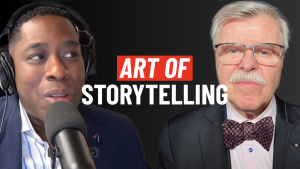Why Storytelling is essential in both filmmaking and hospitality.
In this episode, I have a conversation with award-winning filmmaker Jaze Bordeaux about the art of storytelling in hospitality. Bordeaux shares his journey from finance to filmmaking, emphasizing the importance of crafting compelling narratives that resonate emotionally with audiences.
He discusses how hoteliers can create authentic guest experiences by anchoring their brand stories in emotional truths and relatable experiences.
The conversation explores the balance between authenticity and commercial polish, the significance of casting the right people in hospitality, and the importance of audience response over industry recognition. Bordeaux concludes with advice for hoteliers to commit to their unique stories, ensuring they connect with their guests on a deeper level.
This how Jaze feels about hotels:
…And I feel like with hotels, it’s incredible because it’s a space where there’s so many people coming through, there’s so many stories that are being told. Every hotel, even if it’s a franchise hotel, has something slightly distinct about it.
…And I feel as though if you can literally make that a character, like part of the crew, the, you know, the cast of employees that are there, it’s really easy, for example, for people to remember and talk about it. Here we are on this podcast.

Podcast: Play in new window | Download

